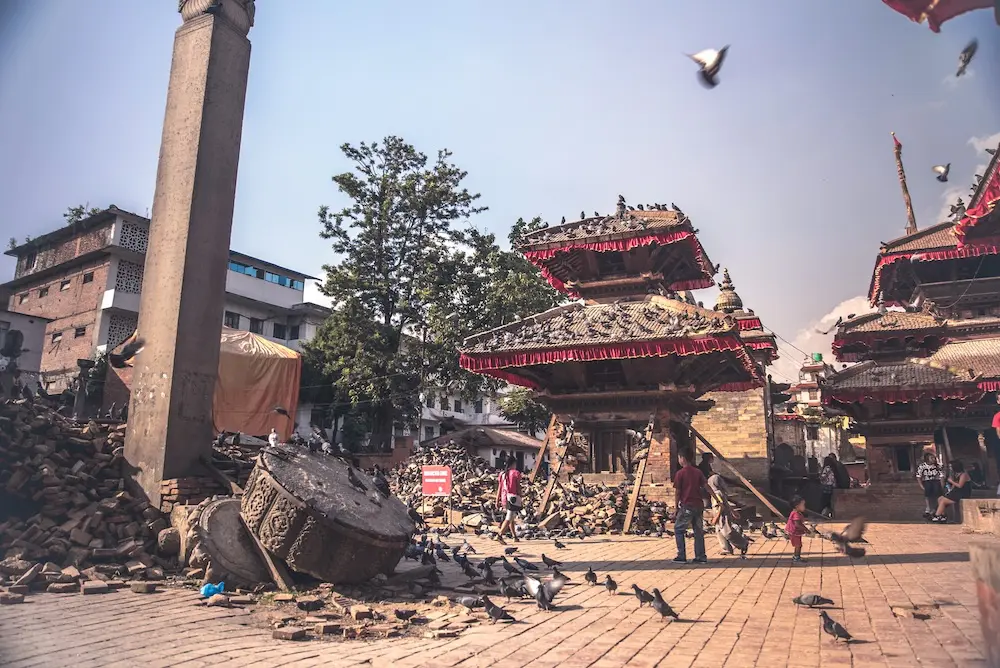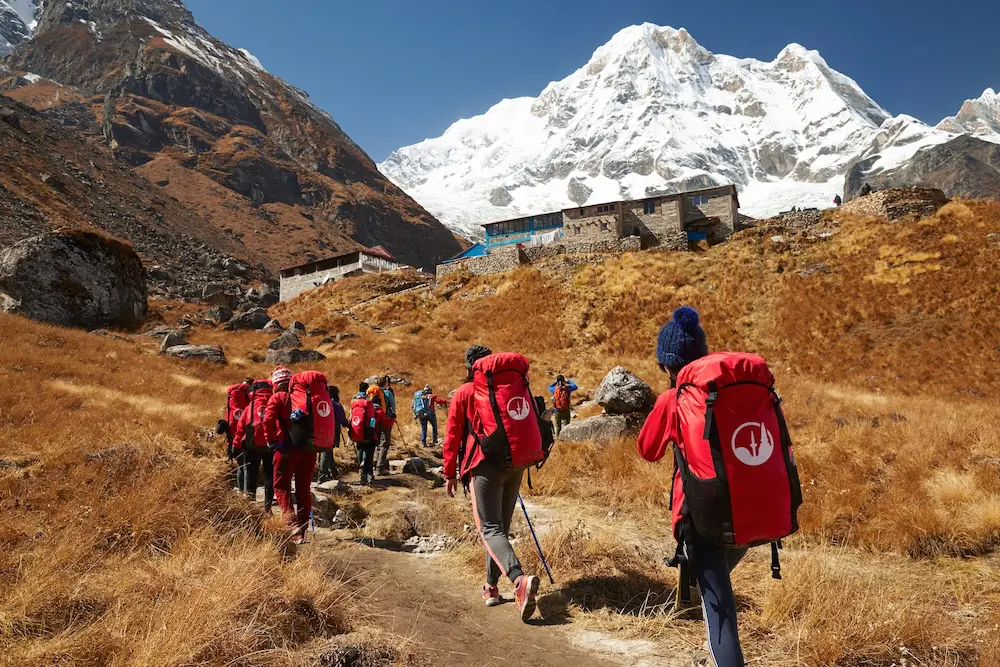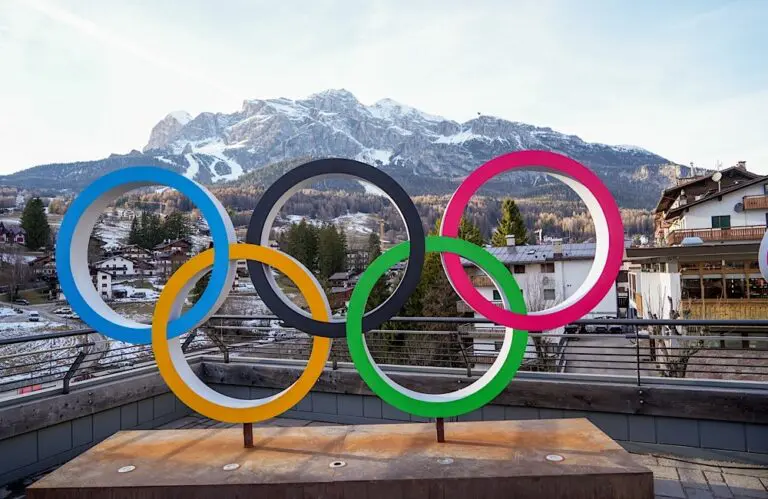A decade after Nepal’s catastrophic 2015 earthquake, Intrepid Travel Managing Director Asia, NATALIE KIDD, reflects on the crucial role tourism plays in the long-term recovery of destinations post-disaster.
Ten years ago, Nepal was preparing for what should have been a bumper trekking season. Then, on 25 April 2015, an earthquake struck. Measuring 7.8, it devastated the capital Kathmandu, caused widespread infrastructure collapse and led to the loss of over 9,000 lives.
But there was another, quieter disaster unfolding: the loss of tourism. Flights were cancelled. Travellers stopped coming. Local businesses that relied on tourism, along with guides, porters, guesthouses and restaurants lost everything overnight.
Tourism, a major source of foreign income for Nepal, was down by about two-thirds within a year after the earthquake, according to Nepalese tourism data.

When the devastating quake struck, Intrepid had over 300 customers and 77 employees on the ground in Nepal. Our immediate priority was ensuring the safety of our travellers and staff and repatriating them as quickly as possible. Within days, we had also launched emergency fundraising appeals through our not-for-profit arm, The Intrepid Foundation, raising $400,000. We also donated all profits from Intrepid’s Nepal trips in 2015 and 2016 to local NGOs supporting recovery efforts.
But it wasn’t until six weeks later, when I visited Nepal, that our next priority became clear: reviving tourism, the lifeblood of Nepal’s economy. I saw firsthand that in times of crises, tourism is more than an economic driver; it brings hope, jobs and the momentum to rebuild.
Travel as a lifeline
One of the key lessons from Nepal was understanding the true economic value of tourism.
After a natural disaster, the immediate priority is always to focus on casualties, safety, food, water and shelter. But after those critical needs are met, people need to “get back to work”; they need an income.
It’s easy for travellers to stay away, and in the immediate aftermath of a disaster, that can be the right choice to avoid hindering rescue efforts. But once that initial phase passes, staying away for too long means tourism infrastructure, from tour guides to hotels and restaurants, struggles. These businesses rely on tourism for their livelihoods, and without visitors, local economies are severely impacted.
The delicate balance lies in encouraging people back to visit, not too soon, but not staying away indefinitely. We learned this valuable lesson in Nepal, and it’s been a guiding principle in our approach to post-disaster recovery, including our efforts in Morocco following the 2023 earthquake.
Tourism’s role in Nepal

Intrepid’s travellers to Nepal fell 40% a year after the earthquake, but momentum steadily returned.
By 2017, trekkers were back in record numbers, thanks to the collective and collaborative efforts of tourism operators, local businesses and international partners.
The Nepalese government’s investment in safety and infrastructure helped rebuild trust, and by 2019, tourism was contributing 6.7% to GDP, up from 4.3% pre-earthquake.
The pandemic brought fresh challenges, but by 2024, Nepal welcomed over 1 million visitors, a powerful sign of the industry’s resilience.
Nepal’s tourism revival has been acknowledged both locally and internationally. In 2024, Intrepid Nepal, along with many other local and global operators, was recognised for its contribution to the country’s economic recovery.
Intrepid Nepal was honoured as the top foreign currency earner among trekking agencies in Nepal, a recognition shared during the 45th World Tourism Day. This acknowledgment highlights the collective efforts that have played a role in Nepal’s recovery and the vital role that global tourism can have in supporting local economies.
Lessons learned

Our learnings from the Nepal earthquake response were applied to the Morocco 2023 earthquake recovery efforts, where Intrepid took swift action by confirming the safety of all travellers, reassuring media and customers, and shifting focus to support local communities.
Building on these insights, alongside local communities, NGOs and industry peers, we launched a fundraising campaign that raised over $600,000 through The Intrepid Foundation.
This amount was directed towards grassroots organisations providing emergency relief and rebuilding efforts, including The High Atlas Foundation and Education for All.
We also partnered with the Moroccan National Tourism Office to expand tourism potential in the country, aiming to increase visitor numbers and support local economies.
As climate change and natural disasters become more frequent, we must be prepared for the challenges ahead. Tourism cannot be a short-term fix – it must be part of a sustainable, long-term recovery plan. It’s about more than bringing visitors back; it’s about ensuring that communities are equipped to manage tourism in a way that benefits everyone.
As we reflect on the 10 years since the earthquake, we honour the resilience of the people of Nepal. Their journey of recovery is a testament to their strength, and the role of tourism in that recovery remains undeniable.
When the next disaster strikes, tourism needs to be part of the solution. As tourism operators, we have a critical role to play; we must move beyond symbolic gestures and contribute meaningfully to long-term recovery. We must act swiftly, responsibly and with a commitment to long-term change to support the local communities and economy.






